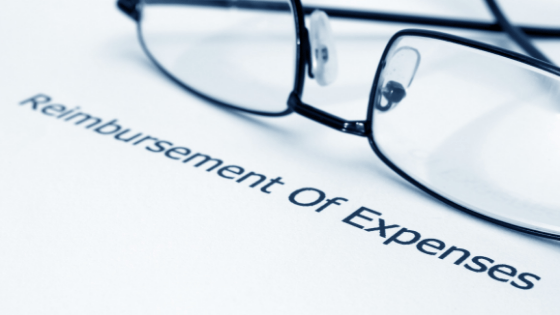Post Title
Author name
One powerful tax planning tool for many small businesses that is often overlooked is the use of an accountable plan for expense reimbursement.

One powerful tax planning tool for many small businesses that is often overlooked is the use of an accountable plan for expense reimbursement. Without getting too complicated, it is essentially a plan where employees of a company can be reimbursed by the company for valid business expenses.
This is a common arrangement when between employers and employees; many of you reading this may have worked somewhere with a plan like this in the past. You bring in receipts from your business conference, you in turn get reimbursed for those expenses. If IRS conditions are met, the reimbursement is not taxable to the employee but is deductible to the business.
This common arrangement is often overlooked and underutilized in small business planning. Many small businesses have elected to be taxed as a Subchapter S-Corporation, which means owners are often shareholders and employees. With the company being a distinct entity, there is an opportunity to utilize reimbursements in certain instances. Of course, getting money out of the business without creating a taxable event is always a challenge.
Automobile Mileage Reimbursements
Many small businesses are most likely familiar with deducting the standard mileage rate ($0.545 for 2018 per mile). Twenty thousand business miles could be a $10,900 tax deduction. Depending on your marginal tax rate, this could be saving you roughly $1000 - $3500 in federal tax liability (tax rates vary from 10% to 37%). A reimbursement for business miles used on a personal vehicle could be more impactful for this taxpayer. The reimbursement of $10,900 would allow for the non-taxable transfer of $10,900 from the business account to the personal account. The reimbursement is not taxable to the taxpayer (the employee) but is deductible to the Company (also owned by the taxpayer).
A question I always ask my clients or someone looking for tax consultation is “would you rather save a couple thousand in taxes, or get a non-taxable check for $10,900?”
Home Office Deduction
Many small business owners may utilize a home office. Many have been told they cannot take the home office deduction if they own a business, but this doesn’t mean a reimbursement can’t be achievable. Similar to the auto example, let’s say the home office deduction was $2,000 for the year. This may result in tax savings of $200-$740 depending. The reimbursement of the same $2000 results in a non-taxable transfer of funds. Would you rather save a few hundred in taxes, or get $2,000 non-taxable check?
In both instances, we are talking about mixed-use expenses or things that are some business use and some personal use. 100% business should be paid from business funds, 100% personal should be paid from personal funds.
Other potentially reimbursable, mixed-use expenses – Home internet, cell phone, tools, and equipment.
IRS conditions include:
• Expenses have a valid business connection.
• Proper substantiation – expense reports – receipts, mileage logs, etc.
• Return of excess – excess reimbursements must be returned, or they become taxable to the employee and must be included on the W2 at year-end.
I highly recommend that most, if not all business owners, should utilize an accountable plan. If your plan is challenged by the IRS, you will need to be able to show your plan followed the parameters and can demonstrate the enforcement through accurate records.
Do you plan on leaving money on the table in your S-Corporation in 2019? Feel free to reach out to our CEO, Josh Morphew – josh@insightful.tax, to schedule a free consultation.










